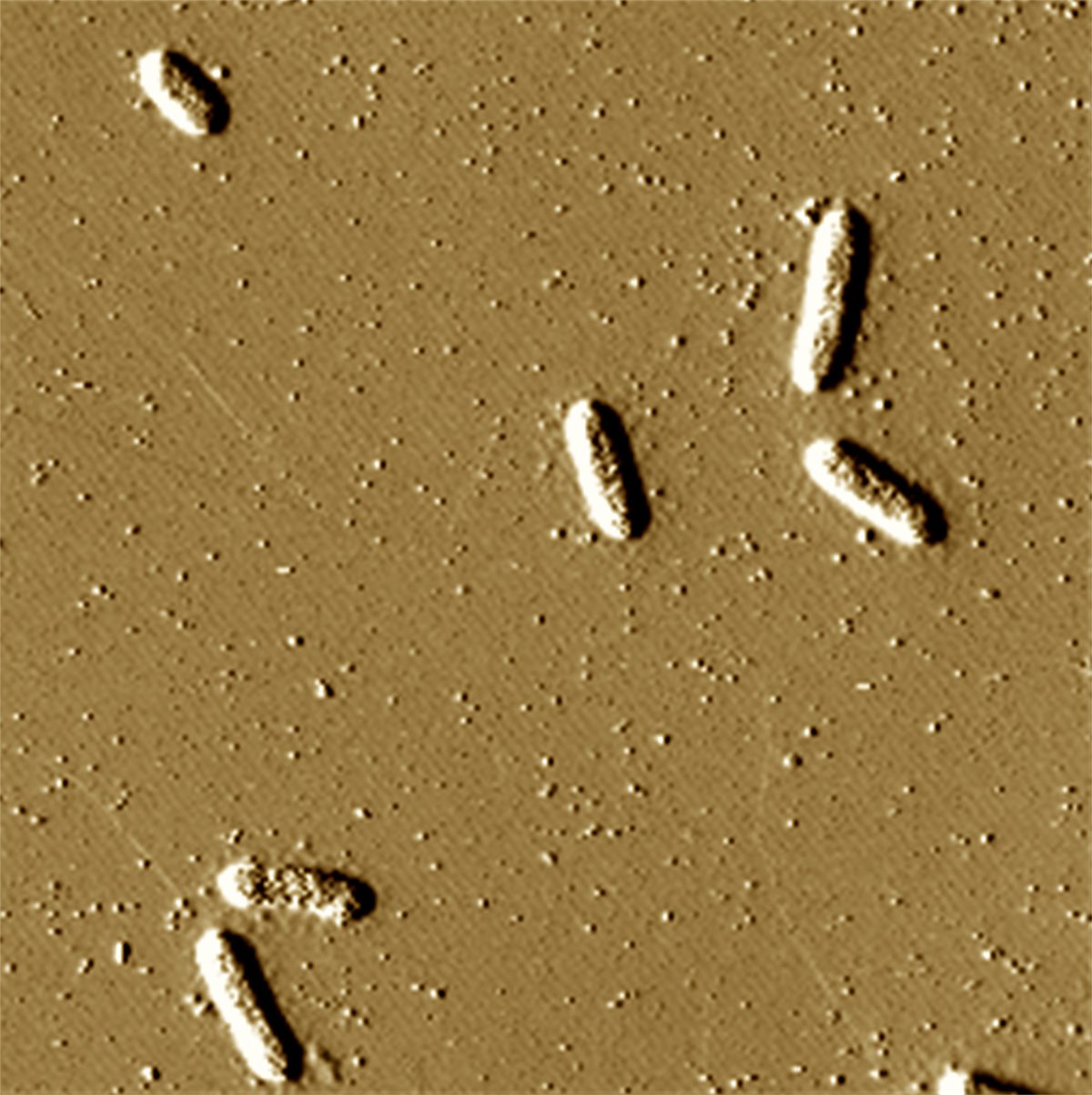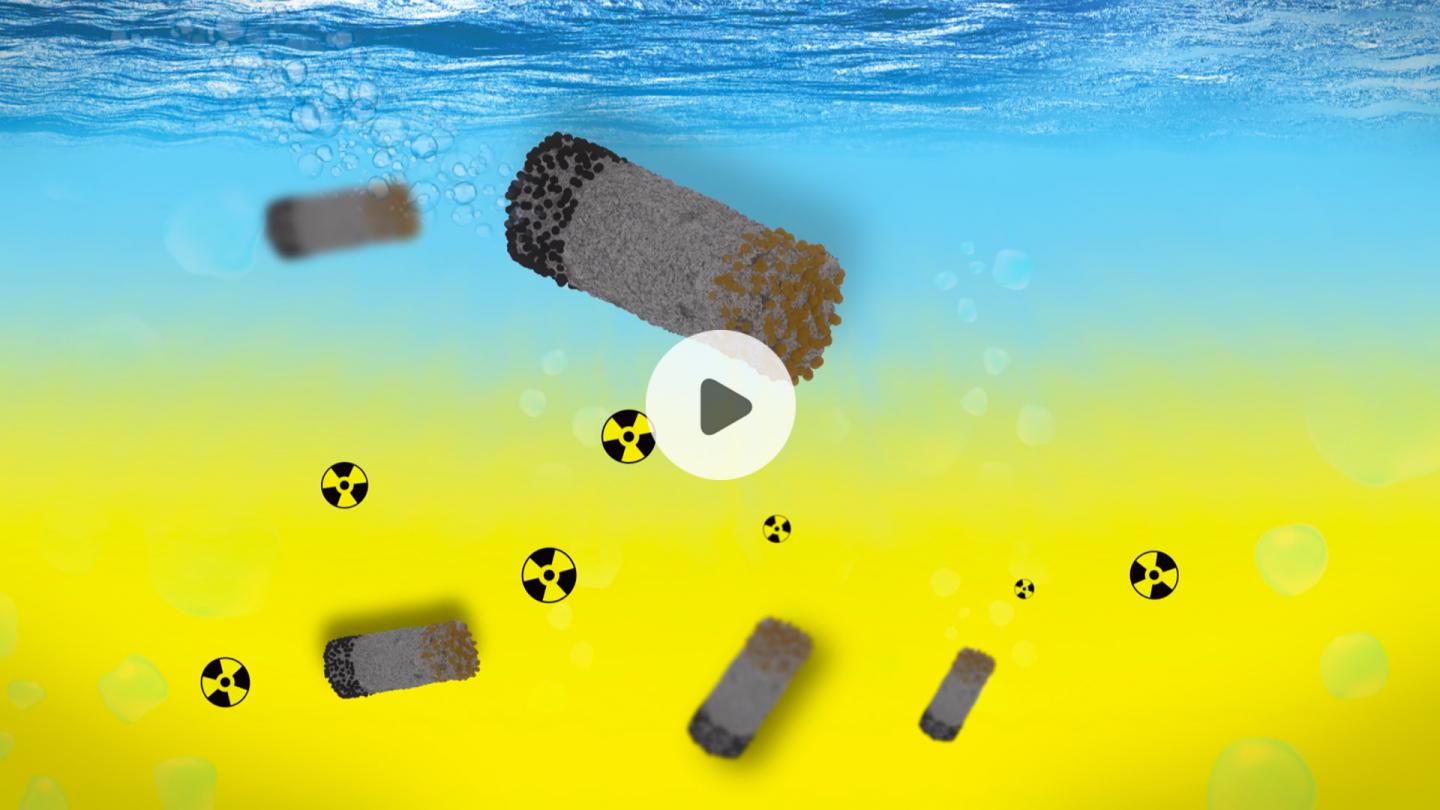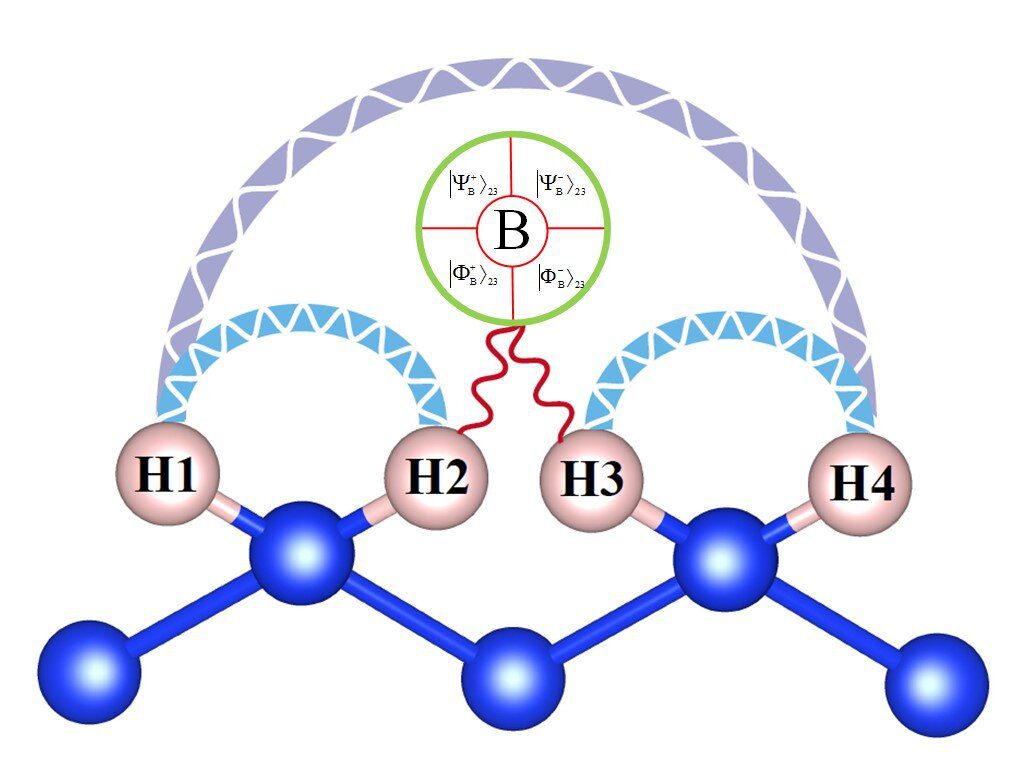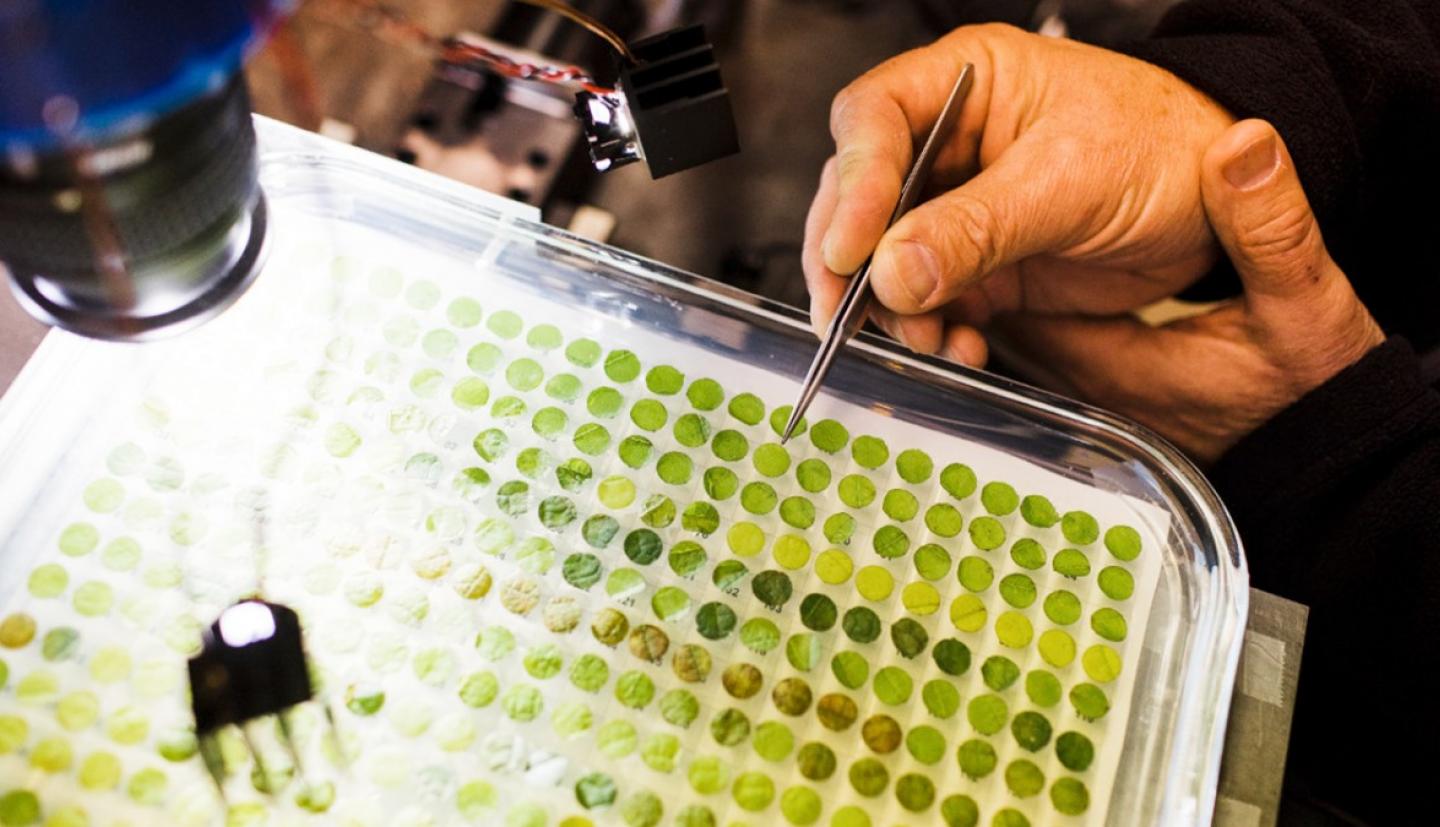
Spartan researchers have revealed that Geobacter bacteria — the rod-like shapes in this microscope image — package uranium into vesicles, which are seen as the light specks dotting the image.
Credit: Morgen Clark
Spartan research reveals ‘sponge’ made by Geobacter can soak up uranium
For decades, scientists suspected that bacteria known as Geobacter could clean up radioactive uranium waste, but it wasn’t clear how the microbes did it.
“The biological mechanism of how they were doing this remained elusive for 20 years,” said Gemma Reguera, the Spartan microbiologist whose team solved that mystery 10 years ago. Well, three-quarters of the mystery. She’s now cracked the rest of the case.
What Reguera discovered in 2011 was that, on one side of their cells, the Geobacter make protein filaments that act like little wires to literally zap uranium. This does two things. For one, the jolt triggers chemical reactions that give the bacteria energy. Secondly, that chemistry traps the uranium in a mineral form, preventing the radioactive material from spreading through the environment.
But those protein wires accounted for just about 75% of the uranium that the Geobacter were cleaning up.
“We always knew we were missing something,” said Reguera, a professor of microbiology and molecular genetics in the College of Natural Science. “What we didn’t know was what was happening at the cell surface, particularly on the side of the cell that had no wires to immobilize the uranium.”
Now, Reguera’s team has the answer. Molecules called lipopolysaccharides coat the cell surface and soak up the uranium like a sponge.
Published online August 4 in the journal Applied and Environmental Microbiology, this finding could create new ways not only to remediate dangerous pollution, but also to recycle and reclaim increasingly scarce metals from electronics waste. The next step, Reguera said, is investigating whether the Geobacter and their sponges can be encouraged to pull other toxic metals from waste streams.
“We can ask whether we can make a system for the selective removal of metals,” Reguera said. It would work kind of like a fermenter, where respiring microscopic yeast cells make alcohol, only here, the respiration of Geobacter bacteria would trap toxic and important metals using protein nanowires and the newly discovered molecular sponges.
As the Geobacter soak up uranium, they also start packaging it into vesicles, which are bubble-like orbs coated with the lipopolysaccharides. The bacterial cells release the vesicles and replenish their lipopolysaccharide coating to sop up more uranium.
“It’s a mechanism to remodel the cell surface and ensure maximum protection. The cells produce some vesicles under normal growth conditions but increase production to get rid of the trapped uranium. We are now investigating how to scale up vesicle production,” Reguera said. “We could essentially make a factory for these vesicles to pull metals out of water.”
For Reguera, how this discovery was made is as exciting as the discovery itself. Her team’s protein wire finding in 2011 was published toward the end of the project’s funding. Starting up a new investigation into what happened to the other 25% of uranium the Geobacter soaked up would take time.
Original Article: These bacteria clean up radioactive waste
More from: Michigan State University
The Latest Updates from Bing News & Google News
Go deeper with Bing News on:
Bacterial sponges trap uranium
- Best Uranium Stocks
One option that’s growing in popularity is uranium, a highly unstable element used to generate energy in nuclear power plants. Investors need to understand the ins and outs of uranium stocks.
- The Best Way To Clean A Sponge (Yes, You Need To Know This)
However, you’d be wrong. Sponges have been proven to be a breeding ground for bacteria, carrying over 300 different types. Kitchen sponges are particularly scary. While there’s nothing quite ...
- Uranium-immobilizing bacteria in clay rock: Exploring how microorganisms can influence the behavior of radioactive waste
To do this, they brought the bacterial cultures into contact with uranium salt solutions in natural pore water of the clay rock, covered by a nitrogen atmosphere that protects them from ...
- Uranium-immobilizing bacteria in clay rock
To do this, they brought the bacterial cultures into contact with uranium salt solutions in natural pore water of the clay rock, covered by a nitrogen atmosphere that protects them from ...
- Your Sponge Is 200,000 Times Filthier Than a Toilet Seat—Here’s What To Use Instead
Sponges are disgusting ... proven to inhibit the growth of bacteria, mold, and mildew. It dries quickly and has a smooth surface that doesn't trap food, which means that it never stinks.
Go deeper with Google Headlines on:
Bacterial sponges trap uranium
[google_news title=”” keyword=”bacterial sponges trap uranium” num_posts=”5″ blurb_length=”0″ show_thumb=”left”]
Go deeper with Bing News on:
Bacterial sponges trap metals
- I’m a cleaning pro – six things you should scrub without fail every week & you’re definitely forgetting 2 of them
The fourth item were her make-up brushes and sponges, and this is because they are absorbent and soak up water, dirt, bacteria, oil, and dead skin To achieve this, she rubbed the brushes on a bar ...
- Food Network star warns you’re not switching sponges nearly often enough – and reveals how to make them last longer
She also revealed that if your sponge is already beginning to smell, bacteria is already present, and the cleaning item should be disposed of immediately. The experts at Blue Land broke down the ...
- The Best Way To Clean A Sponge (Yes, You Need To Know This)
However, you’d be wrong. Sponges have been proven to be a breeding ground for bacteria, carrying over 300 different types. Kitchen sponges are particularly scary. While there’s nothing quite ...
- Don't Let Your Home Make You Sick: When to Replace Household Essentials
Try microwaving damp sponges for a minute daily to kill germs, or switch to reusable silicone scrubbers. Change them every 1-2 years. Deep cuts and scratches on cutting boards can trap bacteria ...
- Smith: Sponges, dish rags and scrub brushes can hinder spring cleaning
Everyday tasks, such as washing dishes and prepping food can actually spread bacteria if not done correctly. Kitchen sponges, dish rags and scrub brushes, if not properly washed and sanitized ...
Go deeper with Google Headlines on:
Bacterial sponges trap metals
[google_news title=”” keyword=”bacterial sponges trap metals” num_posts=”5″ blurb_length=”0″ show_thumb=”left”]










